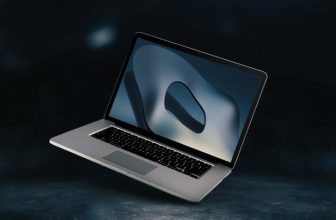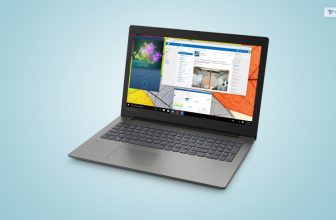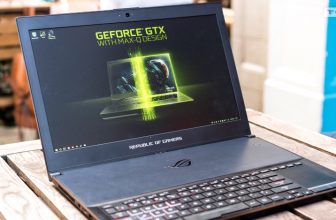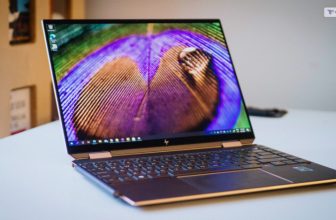
The era of backpacks filled with textbooks and exercise books, for college students is fading away thanks to the use of laptops in education. Steve Jobs once said, “Your laptop is like a library holding a wealth of knowledge waiting to be explored.”
College students may feel overwhelmed when buying a laptop because there are multiple OEM devices and a lot of specifications to consider such as Performance, portability, battery life, screen resolution, and many more.
Fortunately, this comprehensive guide aims to help you navigate through the sea of choices by providing recommendations, for laptops based on usage scenarios and requirements. This article covers affordable, performance, and gaming laptops, as well as a detailed guide on key factors to consider when purchasing a laptop.
Key Factors to Keep in Mind
Laptops consist of components that impact their performance and user experience. Factors such, as size and portability, battery performance, processor efficiency, storage capacity, RAM capability, brand reputation, screen resolution quality, and operating system compatibility should all be carefully considered when selecting a laptop that meets your needs.
Now let’s discus of how these components and factors impact the performance and user experience of a laptop.
1. Portability and size
Laptops between 14 inches to 15 inches are considered small, and often feature a light-weight design. Due to their size, they lack high performance processors and bigger batteries to handle heavy workloads. Large laptops, between 15 to 18 inches, generally have high performance processors and better cooling systems but are heavy and bulky, which makes them less portable
2. Battery life
Battery life refers to the amount of time your laptop can last on a single charge. The main factors that affect your battery life mainly include the processor and the battery capacity. College students should consider should consider buying a laptop that would at least last more than 8 hours to improve their user experience. Such laptops often feature efficiency processors and battery rating of at least 65 watt-hours.
3. Processor and performance
Laptop processors can be classified into three categories; entry level, mid-tier and high-performance series. Laptops equipped with entry level processors like Intel Core i3 and AMD Ryzen 3 series may not offer top notch performance. They are cost effective. On the hand laptops powered by mid-tier processors such as Intel Core i5 and i7 or AMD Ryzen 5 and 7 series provide above average performance. If you need a laptop for demanding computing tasks, high performance processors like Intel Core i9 and AMD Ryzen 9 series are designed for that purpose but they Come at a cost.
4. Storage and RAM
Laptops usually come with internal storage options of either 250GB, 500GB or up to1TB. The 1TB version allows students to store most of their files locally without the need for signing up for third party storage solutions.
Random Access Memory (RAM) configurations range from 4GB, up to32 GB. The amount of RAM determines how efficiently your laptop can handle tasks simultaneously.
Having more RAM greatly enhances the user experience as it allows for running of demanding tasks, with minimal lag.
5. Operating System
Most laptops use windows, Mac, and Linux operating systems. Most students prefer Windows and MacOS because they are compatible with most software and are user friendly. On the other hand, Linux is preferred by students majoring in computer security due to its native support features.
6. Screen Resolution
Most laptops have a screen resolution of either 1080p, 1440p, or 3160p, with premium laptops featuring higher resolutions like 3160p while entry level laptops featuring 1080p. Higher screen resolutions provide accurate colors but consume more power which can impact battery life.
To make a decision when selecting a laptop for college use, consider how these factors would impact your usage requirements. It’s important to weigh the pros and cons of each laptop model as you may need to make some trade-offs in terms of features.
Top Laptops for College Students
When it comes to purchasing laptops, college students tend to opt for gaming laptops, business laptops, or budget friendly options.
These laptops cater to a variety of needs, including performance, budget limitations, gaming capabilities, and portability. Let’s take a look, at these three categories.
Budget friendly Laptops
These laptops are low-cost options that provide basic computing functions for college students. They are particularly popular among college students due to their prices, compact and lightweight designs, and longer battery life. They are suitable for tasks like writing articles for platforms such as homework market, web browsing, emailing, research and social media usage.
Budget friendly laptops often feature entry-level processors like Intel Core i3 series and AMD Ryzen 3 series, which are designed for light workloads, and screen resolutions of 720p and 1080p which aren’t color accurate but decent. However, budget laptops lack a study build which is prone to wear and tear.
Students considering these laptops should go for Acer Aspire 5, HP 250 G9, Lenovo Think Book 13S, Dell Inspiron 15, Lenovo IdeaPad 3 and Dell Latitude 5401, which are focused on basic computing while remaining affordable.
Business oriented Laptops
Business laptops are designed specifically to enhance a student’s productivity while ensuring device durability and upgradability, by offering better device warranties. Also, business laptops have a variety of connectivity ports that allow students to connect external displays and peripheral devices, better build quality, and exceptional battery life compared to budget friendly laptops. These laptops feature mid-range computer processors like Intel’s i5 and i7 series as well as AMD’s 5 and 7 series.
College students looking to purchase these productivity focused laptops should consider Lenovo ThinkPad Series, Apple MacBook Pro series, ASUS Expert Book Series, Microsoft Surface Laptops, Acer Travel Mate Series, and Dell Latitude Series.
The laptops mentioned above are perfect for emailing, online research, essay writing, legal and medical studies, coding, remote work, video editing, and business management studies.
Gaming Laptops
Students who have a passion for gaming but also need a device that meets their academic requirements often find gaming laptops very appealing option. Gaming laptops come with high performance processors, fast storage capacities, and displays that accurately represent colors. Despite their performance capabilities, gaming laptops tend to be bulkier and heavier which makes them less portable.
Popular gaming laptop series for students include the MSI GS Series, ASUS ROG (Republic of Gamers) Series, HP Omen Series, Gigabyte AORUS, Lenovo Legion Slim Series, and Alienware by Dell. Students looking for a device to balance their academic and their gaming life should consider these devices.
Conclusion
In conclusion college students should select a laptop that meets their needs by considering factors such as screen resolution, battery life, software compatibility, performance, build quality, durability, and portability. Which laptop specification would be your priority when purchasing a laptop? We’d love to hear your thoughts, in the comments section.
Read Also:






